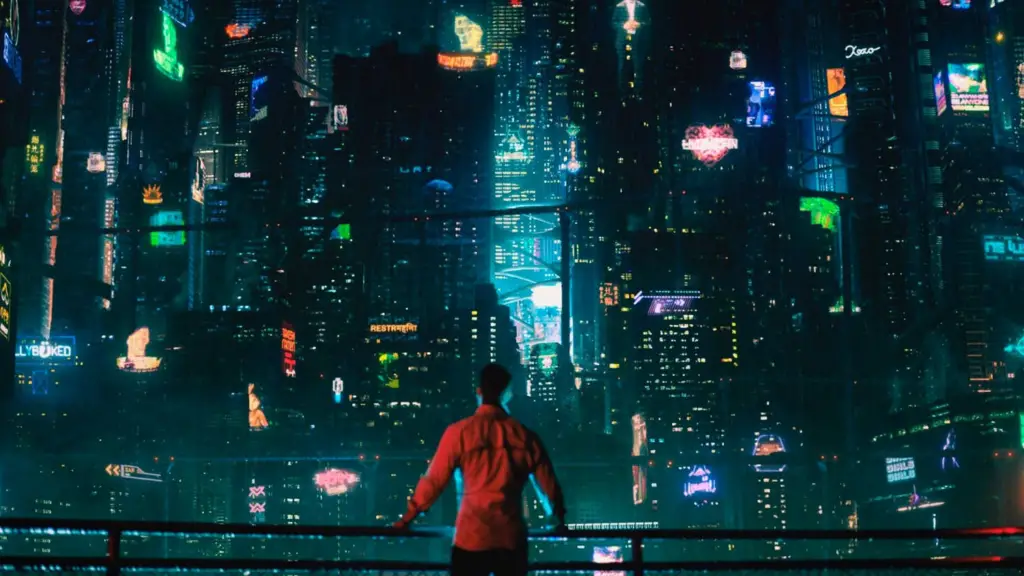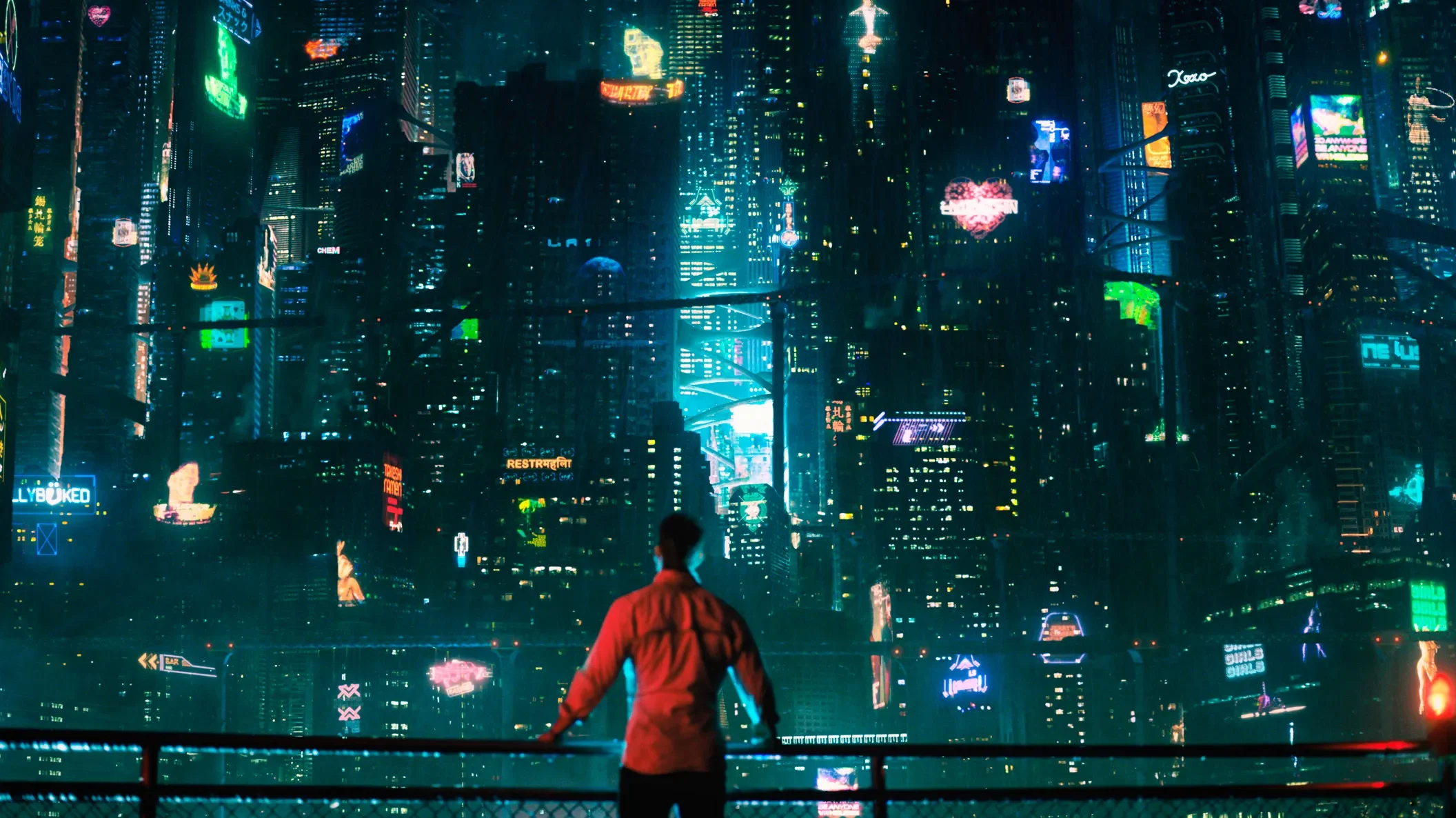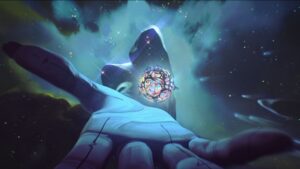Table of Contents
Introduction: Understanding Altered Carbon
“Altered Carbon” is a groundbreaking series that ventures deep into the realms of identity, consciousness, and the implications of immortality. This thought-provoking narrative invites viewers to explore profound questions about what it means to be human in a world where the mind can be transferred to different bodies, challenging our conventional notions of self.
In this blog post, we will provide a comprehensive “Altered Carbon Explained” journey, delving into the psychological dimensions the series presents alongside its philosophical inquiries. The gripping storyline not only entertains but also prompts us to reflect on our own beliefs about existence and identity.
As we unravel the layers of this intricate tale, we will also analyze the powerful visual and narrative techniques employed in the show, alongside recommendations for books that explore similar thought-provoking themes.

The Psychological Dimensions of Altered Carbon
Identity and Memory
At the core of Altered Carbon lies a deep exploration of identity and memory. The series challenges the traditional view that our memories and experiences define who we are. As characters transfer their consciousness into new bodies, the question arises: Are we merely the sum of our memories, or is there something deeper that constitutes our identity? This concept is powerfully illustrated through the character of Takeshi Kovacs, who navigates different bodies while trying to maintain a sense of self.
The psychological implications are profound. The show prompts us to consider how much of our identity is tied to our physical form versus our memories and experiences. Each body represents not just a new physicality but a new set of social interactions and relationships. This ongoing struggle leads to mental distress, showcasing how dislocation from one’s original body can create an existential crisis.
The Impact of Immortality
Immortality, as portrayed in Altered Carbon, has complex psychological ramifications. While the ability to live multiple lives seems appealing, it raises questions about purpose and fulfillment. Characters such as Laurens Bancroft illustrate the darker side of endless life. With few consequences for their actions, immortals tend to exhibit a lack of empathy, leading to moral decay.
The psychological burden of immortality manifests in feelings of loneliness, disconnection, and introspection. When time is infinite, the urgency for personal growth and meaningful relationships diminishes. This creates an existential void, forcing characters to confront the true essence of their existence. The pursuit of meaning becomes even more significant when traditional milestones, such as aging and death, are eliminated.
Trauma and Resilience
Throughout the series, we see characters grappling with trauma—both from their past lives and the process of moving into new bodies. This trauma can be exacerbated by the violent world they inhabit, leading to a cycle of psychological distress. Kovacs, for example, is forced to confront the ghosts of his past, which shape his actions and motivations.
Resilience becomes a central theme as characters like Kovacs strive to reclaim their sense of self and purpose in a constantly shifting reality. The psychological toll of their experiences challenges them to adapt and grow, despite the overwhelming odds. This exploration of trauma and resilience reflects core tenets of human psychology, making Altered Carbon a rich text for examining our understandings of mental health and personal recovery.

Philosophical Implications of Immortality in Altered Carbon
The Nature of Existence
Altered Carbon beautifully illustrates the philosophical quandaries surrounding immortality, particularly regarding the nature of existence. The series posits a future where the human mind can be stored and transferred, allowing individuals to live multiple lives. This blurs the line between life and death, challenging the concept of what it means to exist. If consciousness can persist independent of a physical body, then traditional ontological notions of being come into question.
This leads us to consider existential philosophers like Jean-Paul Sartre and Martin Heidegger, who have discussed the essence of being in relation to time and death. Their ideas echo through the lives of characters who face immortality; without death, the urgency to find meaning in life diminishes. The show forces us to grapple with whether a life without finality can ever truly be fulfilling.

The Ethical Dilemma of Immortal Bodies
One of the most compelling philosophical implications of Altered Carbon is the ethical dilemma posed by immortality. The ability to transfer consciousness raises questions about ownership, agency, and exploitation. In a world where bodies can be rented or purchased, the commodification of human life becomes a disturbing reality. This presents a moral conundrum: What does it mean to be human when bodies can be swapped out like clothing?
The characters in the series navigate a landscape littered with ethical challenges. For instance, wealthy individuals can live indefinitely, effectively creating a class divide based on access to technology. This inequality raises profound questions about justice and moral responsibility. The show invites viewers to ponder whether true equality can exist in a world where some are privileged with everlasting life while others face the inevitability of death.
The Pursuit of Meaning
Immortality in Altered Carbon also prompts a profound inquiry into the nature of meaning and purpose. If life can be extended indefinitely, what motivates individuals to strive for accomplishments or personal development? Characters like Takeshi Kovacs illustrate this struggle, as they confront the emptiness that can accompany an eternal existence.
Philosophers such as Friedrich Nietzsche and Albert Camus have explored the search for meaning in a seemingly indifferent universe. The characters’ journeys reflect existentialist themes, as they grapple with the absurdity of their situations. The quest for purpose amidst endless life calls into question whether meaning is inherent or constructed through our choices and actions.

Ending Explained: What Happens and Its Significance
Recap of the Finale
The ending of Altered Carbon wraps up the intense narrative arcs developed throughout the series, particularly focusing on Takeshi Kovacs’ quest for justice and identity. In the final episodes, Kovacs confronts the enigmatic figure of Laurens Bancroft, revealing deeper truths about immortality, power, and corruption. The climactic showdown takes place within the virtual confines of a sophisticated digital environment where memories can be manipulated, embodying the show’s central themes of identity and reality.
As Kovacs navigates this complex web, he ultimately decides to destroy the original Bancroft, thus putting an end to the cycle of privilege and abuse that immortality has perpetuated. This choice signifies a pivotal moral stand against an oppressive system that values some lives over others, highlighting the sacrifices inherent in the pursuit of justice.
Emotional and Psychological Impact
The emotional fallout from the finale is profound. Kovacs not only triumphs over his adversaries but also comes to terms with his own troubled past. The resolution of his character arc emphasizes the psychological burdens he has carried throughout the series. By facing unresolved traumas and making difficult choices, Kovacs symbolizes the struggle to reclaim one’s identity in a world where it is easily manipulated.
Additionally, the deaths of key characters provoke reflection on the fleeting nature of existence, even within the confines of a technologically advanced society. This underscores a poignant irony: despite the ability to transfer consciousness and escape death, the emotional ties and impact of our actions on others remain deeply significant.
Philosophical Implications
The ending also raises critical philosophical questions regarding the nature of existence and morality. The series concludes with a stark acknowledgment of the ethical dilemmas surrounding immortality. By eliminating Bancroft, Kovacs disrupts the corrupt legacy of those who wield power through eternal life. This act serves as a critique of the societal structures that allow the wealthy to sidestep moral accountability.
Moreover, the final scenes imply a cyclical nature of life, demonstrating that even in a world where death can be sidestepped, true justice can only be achieved through conscious choices, empathy, and authentic connections. It encourages viewers to reflect on their own lives, pushing them to consider what it means to live a meaningful existence in the face of overwhelming technological advances.

Visual and Narrative Techniques in Altered Carbon
Cinematic Aesthetics
Altered Carbon stands out not only for its engaging story but also for its striking visual style. The series employs a blend of cyberpunk aesthetics and intricate production design that immerses viewers in a futuristic world. Neon-lit cityscapes and high-tech environments create a visually arresting backdrop that enhances the themes of identity and transformation. Each frame is meticulously crafted, from the dark alleys of Bay City to the opulent spaces of the rich, serving as a contrast to highlight social inequalities.
The use of lighting and color palette further amplifies the narrative’s emotional weight. Cool tones often dominate scenes involving existential themes and introspection, while warm hues are employed in moments of connection and human interaction. This careful manipulation of visual elements draws viewers into the characters’ internal struggles and reinforces the philosophical inquiries that underpin the plot.

Non-Linear Storytelling
Narratively, Altered Carbon utilizes a non-linear storytelling technique that mirrors the fragmented nature of memory and identity in a world where consciousness can be transferred. The series frequently shifts between timelines, revealing pivotal backstories that enrich character development. This structure encourages viewers to piece together the narrative puzzle, making the experience feel immersive and engaging.
By presenting events out of chronological order, the series emphasizes the complexities of human experience. Each flashback and concurrent plot thread serves to deepen our understanding of the characters, particularly Takeshi Kovacs. As we explore his memories, the audience gains insight into his motivations and the psychological burdens he carries, highlighting the intricate relationship between memory, identity, and human connection.
Symbolism and Motifs
Altered Carbon is rich with symbolic elements and recurring motifs that enhance its philosophical explorations. The concept of the “sleeve” (the physical body) serves as a constant reminder of the transient nature of self. Characters often confront the idea that they can be reduced to mere physical forms, raising questions about what constitutes identity.
Moreover, the series frequently explores themes of surveillance and control through visual cues. The omnipresence of technology, depicted through various screens and monitoring devices, emphasizes societal implications and ethical dilemmas surrounding privacy and autonomy. These visual narratives reflect deeper anxieties about technological advancements and the potential consequences on human connection and integrity.
Recommended Books Exploring Similar Themes
For readers intrigued by the themes of identity, consciousness, and the psychological implications of advanced technology explored in Altered Carbon, here are five compelling book recommendations:
Neuromancer by William Gibson
A cornerstone of the cyberpunk genre, Neuromancer introduces readers to a world of artificial intelligence and virtual realities. The story follows Case, a washed-up computer hacker hired for one last job. Through a gripping narrative, Gibson delves into themes of consciousness and identity in a technologically advanced landscape.
Buy Neuromancer here
Snow Crash by Neal Stephenson
In Snow Crash, Stephenson combines action, technology, and philosophical musings in a fascinating tale set in a future America. The protagonist, Hiro Protagonist, navigates both the real world and a virtual reality called the Metaverse, raising questions about identity and the implications of living in a digital age.
Buy Snow Crash here
Altered States by Paddy Chayefsky
While it has a different narrative style, Altered States explores the intersection of psychology and technology through the experiences of a scientist experimenting with mind-altering substances. The narrative confronts the nature of consciousness and the boundaries of human experience, echoing many themes present in Altered Carbon.
Buy Altered States here
The Postmortal by Drew Magary
The Postmortal offers a thought-provoking take on immortality and its effects on society. The narrative follows a future where a cure for aging leads to societal upheaval. This novel raises critical questions about the ethics of immortality, the impact on human relationships, and what it means to live a meaningful life.
Buy The Postmortal here
Do Androids Dream of Electric Sheep? by Philip K. Dick
This classic novel, the basis for the film Blade Runner, explores deep philosophical questions about what it means to be human in a world populated by artificial life forms. Through the experiences of bounty hunter Rick Deckard, the book investigates themes of identity, empathy, and the moral implications of artificial intelligence.
Buy Do Androids Dream of Electric Sheep? here
Conclusion: Reflecting on Altered Carbon’s Impact
In conclusion, Altered Carbon serves not only as an engaging science fiction series but also as a profound exploration of identity, memory, and the ethical implications of immortality. Through its intricate narrative and stunning visual aesthetics, the series presents complex questions that resonate with our contemporary understanding of technology and human existence.
As we have discussed in this post, the psychological dimensions and philosophical inquiries posed by the show compel viewers to reflect on their own beliefs about life, consciousness, and connection. The journey through Altered Carbon, when fully embraced with the insights presented here, reveals a deeper understanding of what it means to be human in an increasingly digital age.
Ultimately, the themes explored in Altered Carbon urge us to confront our realities, making it essential viewing for anyone interested in the intersection of technology, psychology, and philosophy. Through this “Altered Carbon Explained” approach, we hope to have illuminated some of the profound nuances that make this series a monumental work of art and thought.
Take a look at all our in-depth reviews here.




